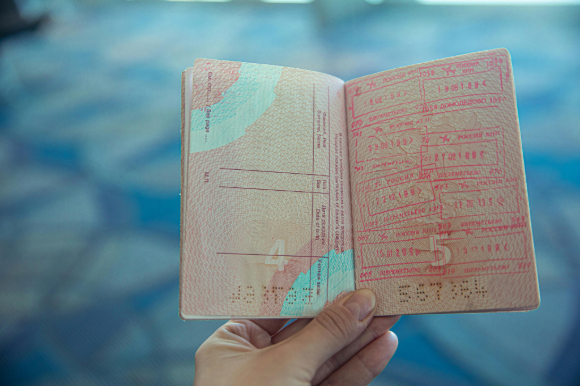The US government is launching a pilot program that could require foreign nationals from certain countries to pay a $15,000 (£11,300) deposit when applying for a tourist or business visa. The 12-month initiative aims to reduce the number of visa overstays and address concerns about insufficient screening or vetting information, according to a recent notice issued by the US State Department.
While the notice does not specify which countries are affected, it highlights that the program targets visa applicants from nations with a high rate of visa overstays, where screening procedures are seen as inadequate, or where Citizenship by Investment programs are prevalent. These are countries where individuals can obtain citizenship without a residency requirement, a practice that has raised concerns for US authorities.
The program is part of a broader effort by the Trump administration to clamp down on illegal immigration and tighten immigration policies. President Donald Trump signed an executive order on his first day in office during his second term, reaffirming his commitment to reducing illegal immigration and limiting opportunities for foreigners to overstay their visas.
According to the State Department’s notice, the new policy will apply to nationals of countries identified as high-risk due to their visa overstay rates or inadequate vetting information. Individuals from these countries who apply for temporary visas for business (B-1) or tourism (B-2) may be required to post a bond of up to $15,000 before their visas are granted. Consular officers will have the discretion to determine whether applicants from these countries need to pay the deposit.
In recent years, the Trump administration has implemented several measures aimed at restricting immigration, particularly from nations deemed to pose national security risks. The president has also signed orders to scale back programs intended to assist migrants from certain countries who are already in the US, including humanitarian programs designed to protect refugees and asylum seekers.
The administration has taken steps to limit the entry of foreign nationals from 12 countries, banning travel from these nations entirely, while imposing partial travel restrictions on citizens of seven other countries. Additionally, Trump’s government has revoked the visas of hundreds of international students, often without warning, and detained others on US college campuses, preventing them from appealing their cases.
The US State Department justifies these moves as necessary to protect national interests, particularly against activities it believes undermine US security or foreign policy objectives. Many of the individuals affected have been linked to pro-Palestinian activism, although there have also been reports of visa cancellations related to criminal charges or other legal violations, including minor infractions such as traffic tickets, according to immigration attorneys.
As this pilot program moves forward, many experts are closely monitoring its potential impact on international travelers and US foreign relations, particularly with nations that may feel targeted by these new measures.






